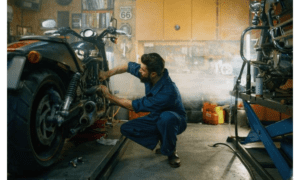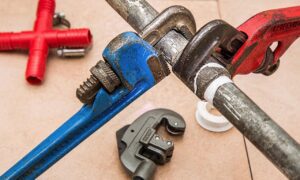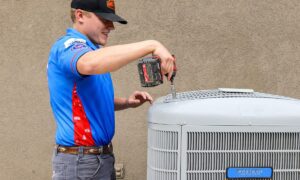Home appliances are essential for our daily lives, making tasks easier and more efficient. However, like any mechanical device, they can experience issues over time. Understanding the common problems and solutions can help you make informed decisions about home appliance repair. In this article, we will explore various aspects of home appliance repair, including common issues, DIY fixes, and when to call a professional.
Understanding Common Appliance Problems
1. Refrigerator Issues
Symptoms:
- Not cooling properly
- Excessive frost buildup
- Strange noises
Potential Solutions:
- Check the thermostat settings.
- Clean the condenser coils to enhance airflow.
- Inspect door seals for any gaps or damages.
2. Washing Machine Troubles
Symptoms:
- Leaking water
- Failure to spin or agitate
- Unusual noises during cycles
Potential Solutions:
- Inspect hoses for leaks or cracks.
- Check the lid switch and motor coupling.
- Balance the load and ensure proper distribution.
3. Oven and Stove Problems
Symptoms:
- Inconsistent cooking temperatures
- Burners not igniting
- Strange odors
Potential Solutions:
- Calibrate the oven temperature using an oven thermometer.
- Clean burner heads and ignitors to remove debris.
- Inspect electrical connections and fuses.
4. Dishwasher Dilemmas
Symptoms:
- Poor cleaning results
- Water pooling at the bottom
- Strange noises during operation
Potential Solutions:
- Clean the filter and spray arms.
- Ensure proper loading of dishes.
- Check for clogs in the drain hose.
DIY Repair Tips
1. Basic Tools You’ll Need
- Screwdrivers (flathead and Phillips)
- Pliers
- Multimeter
- Wrench set
- Vacuum cleaner (for cleaning coils and filters)
2. When to Attempt DIY Repairs
- Minor Issues: If the appliance is experiencing minor issues that are easily identifiable, such as a clogged drain or a broken belt, you might consider tackling the repair yourself.
- Manufacturer’s Manual: Always consult the appliance’s manual for troubleshooting steps and repair guidelines.
3. Safety First
- Unplug the Appliance: Before starting any repair, ensure that the appliance is unplugged to avoid electrical shocks.
- Wear Protective Gear: Safety goggles and gloves can protect you from potential hazards.
When to Call a Professional
1. Complex Problems
Some issues require advanced knowledge and experience, such as:
- Electrical problems
- Gas-related repairs
- Refrigerant issues in refrigerators and air conditioners
2. Warranty Considerations
If your appliance is still under warranty, attempting DIY repairs may void it. Always check the warranty terms before making any repairs.
3. Time and Effort
If you find yourself spending too much time troubleshooting or the problem persists, it may be more efficient to hire a professional repair technician.
Finding a Reliable Repair Service
1. Research Local Technicians
Look for appliance repair services in your area. Check online reviews, ratings, and testimonials to gauge their reliability and customer satisfaction.
2. Ask for Estimates
Contact several repair services to get estimates for the repairs needed. This will help you compare prices and choose a service that fits your budget.
3. Verify Credentials
Ensure that the repair technicians are licensed and insured. This provides peace of mind and ensures quality service. Visit our website, http://sos-assistance.com for more details.
Conclusion
Home appliance repair can save you time and money when done correctly. By understanding common appliance problems and solutions, you can decide whether to tackle repairs yourself or seek professional help. Regular maintenance can also prolong the life of your appliances, minimizing the need for extensive repairs in the future. Always prioritize safety and consider your skill level before attempting any repairs.
Read More From Techbullion



































